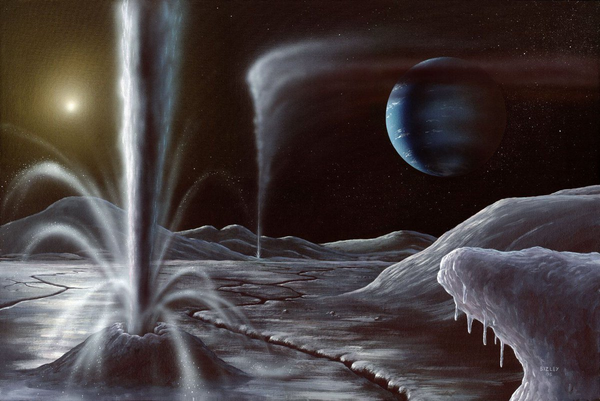
Astronomy Colloquium - "Cryovolcanism and the Creation of Habitable Niches on Ocean Worlds in Our Solar System and Throughout the Galaxy"
- Event Type
- Seminar/Symposium
- Sponsor
- Department of Astronomy
- Virtual
- Join online
- Date
- May 2, 2023 3:45 pm
- Speaker
- Lynnae Quick, Ocean World Planetary Scientist and Associate Branch Head Planetary Geology, Geophysics, and Geochemistry Laboratory NASA Goddard Space Flight Center
- Contact
- Rebecca Bare
- rsbare@illinois.edu
- Phone
- 217-265-8226
- Views
- 64
We are familiar with volcanism as a fundamental process that has shaped the surfaces of the terrestrial planets in our solar system. However, cryovolcanism, the eruption of briny aqueous solutions, crystal-liquid slurries and/or vapor and crystalline ice, has shaped the surfaces of many of the ocean worlds and the dwarf planets in our solar system. From the enigmatic faculae or “bright spots” on dwarf planet Ceres, to the viscous cryolava domes and putative plumes on Jupiter’s moon Europa, cryovolcanism has played a significant role in the cycling of water and energy between the interiors and surfaces of these bodies and has often been presented as evidence for the existence of internal liquid reservoirs or subsurface oceans within them. Recent work has shown that cryovolcanism may also shape the surfaces and influence the evolution of H2O-rich extrasolar planets. Similar to the icy ocean worlds in our outer solar system, cryovolcanic eruptions on exoplanets that orbit beyond the H2O snowlines of their respective planetary systems could indicate the presence of internal liquid reservoirs, possibly subsurface oceans. Furthermore, the required internal cycling of liquid water and heat, which is necessary for cryovolcanism to operate on these worlds, may facilitate the formation of habitable niches within them. In this talk I will review my work studying cryovolcanic processes on the ocean worlds and dwarf planets in our solar system, discuss prospects for cryovolcanic activity on extrasolar ocean worlds, and consider the potentially important role that cryovolcanism could play in creating habitable conditions on ocean worlds throughout the universe. Lastly, I will review the goals of NASA’s Europa Clipper Mission, which will make new discoveries at our solar system’s own active ocean world.
https://go.illinois.edu/AstroColloquium This event is virtual only. Not in person.